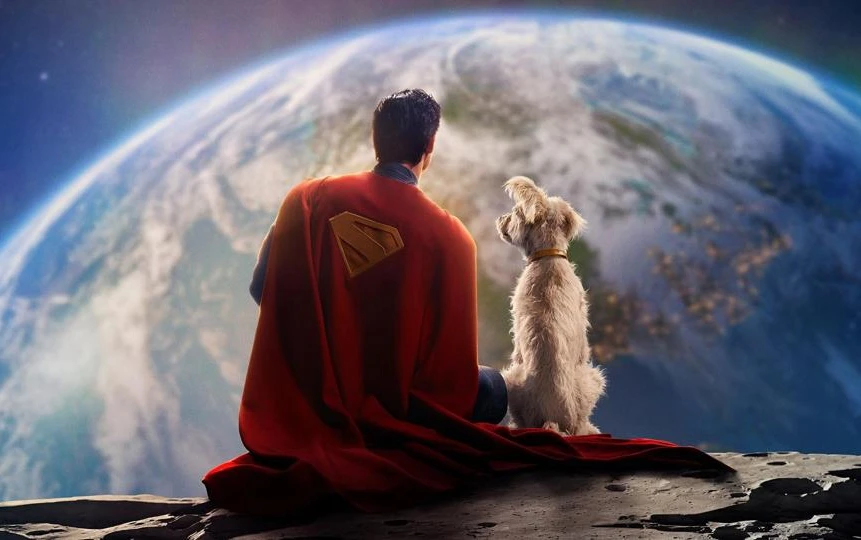The use of media as propaganda dates back to the very beginnings of the film industry, when studios and filmmakers realized they could reach the masses—hungry for stories and captivated by this new form of entertainment. During cinema’s formative years, the world was marked by war and economic crises. At the same time, comic books were gaining popularity with young audiences, and the superhero genre was just beginning to take shape.
Heroes were needed—to lift morale, inspire hope, and give people something to believe in. And out of this turmoil, in 1938, was born the most iconic superhero of all: Superman. With his immense strength, flight, laser vision, and a costume bearing the colors of the American flag, he embodied everything good and heroic. For many, Superman represented the best of America, a symbol of national pride and moral integrity.
But times change. In a deeply divided nation, where cynicism has replaced faith in the so-called American Dream, and distrust surrounds government, media, and power structures, what role can an optimistic, nationalist icon like Superman play?
It doesn’t help that, in today's cultural climate, figures who appear “too perfect”—whether for their intelligence, looks, or moral character—often provoke suspicion. Audiences crave relatability, vulnerability, and human flaws. Add to that the modern reevaluation of masculinity, and the concept of an invincible superhero no longer feels aligned with contemporary sensibilities.
So, where does Superman fit in now?
This film attempts to answer that question by reintroducing us to a more grounded version of the character. He’s no longer just a beacon of hope, but a man subject to public scrutiny, political agendas, and the consequences of his actions. In a world dominated by geopolitical tensions and conflicting narratives, Superman's ideals seem almost naïve. His goal remains simple: to help, to save lives, to use his powers for the greater good. But in a complicated world, selflessness doesn’t always have a place.
This modern take gives Superman more humanity than any previous version. His vulnerability is not just physical but emotional. He sometimes needs help—he stumbles, questions himself, and grows. Much like in his original conception, this Superman reflects the political climate of his time. Lex Luthor’s motivation—rooted in envy and megalomania—can be read as commentary on the greed and egotism of the wealthy elite. But it also mirrors our collective discomfort with greatness. In a culture quick to tear down public figures who seem “too good to be true,” Luthor becomes a symbol of the darker side of human nature.
The plot is dense, involving a vast political conspiracy where Luthor manipulates arms sales and influences a fictional war-torn nation. Through deceit and influence, he gains power from within the U.S. government, enabling him to imprison Superman in a secret interdimensional facility. Strikingly, Superman doesn’t resist—his adherence to the law and respect for democratic institutions are so strong that he willingly submits, even when it leads to his downfall.
To some—especially longtime fans or purists—this portrayal may feel like a betrayal, turning Superman into a weak, ineffective figure. But others will appreciate the attempt to add depth and moral complexity to a character often dismissed as one-dimensional. It's a fresh lens on a classic mythos: placing an idealistic character in an ethically messy world.
The film’s pacing drags somewhat in the middle, and the narrative can feel overly complicated for a Superman story. The tone fluctuates between a grounded political thriller and a science-fiction action spectacle, which may be jarring for some viewers. Yet despite these flaws, the movie remains engaging—especially for those who resonate with its themes and character arcs.
In the end, the film champions the belief that goodness endures. As the climax unfolds, characters who once doubted Superman rally to his side, inspired by his unwavering will to save humanity—even when it means great personal sacrifice. The message, consistent with the franchise’s legacy, is clear: moral courage and integrity will always triumph over corruption and evil.



